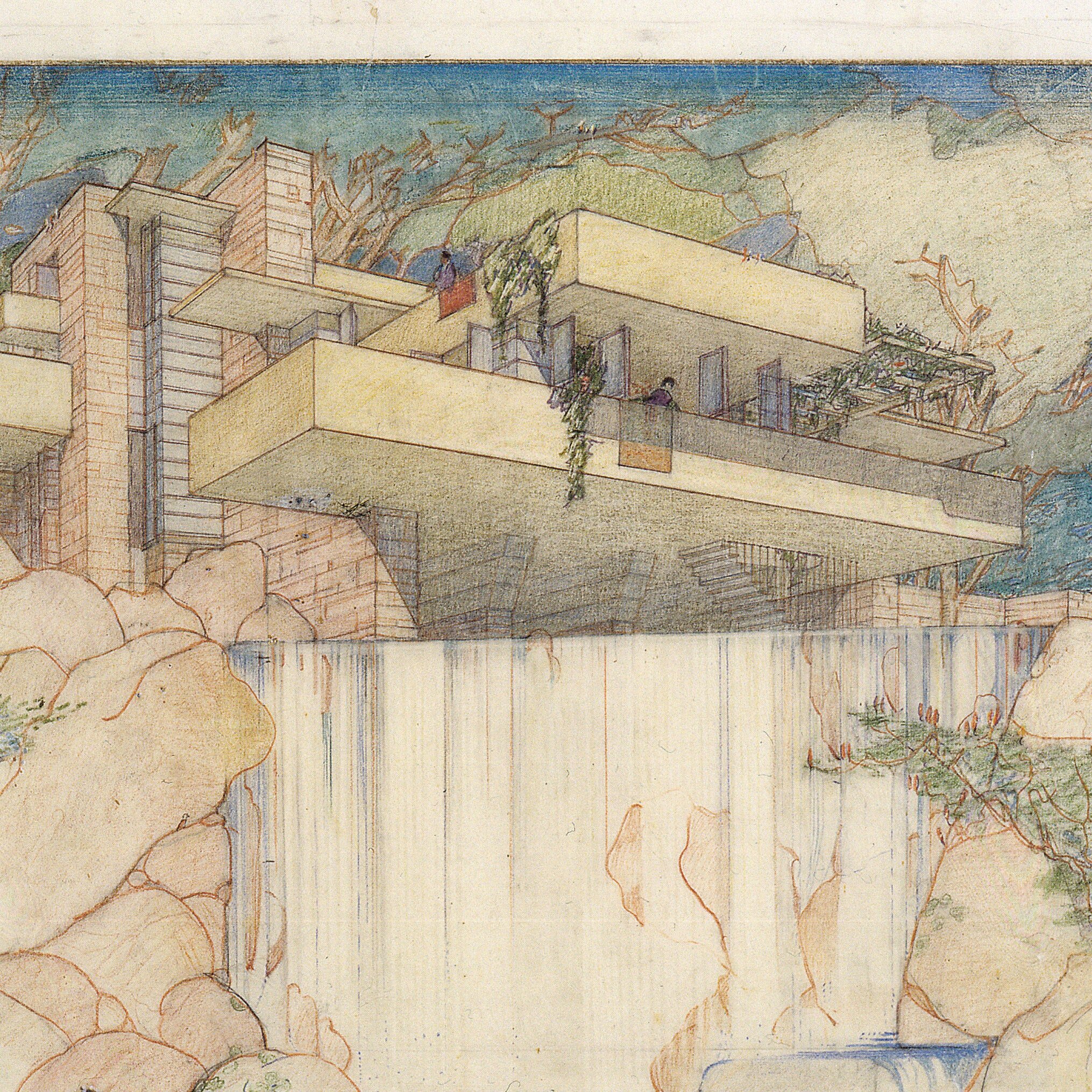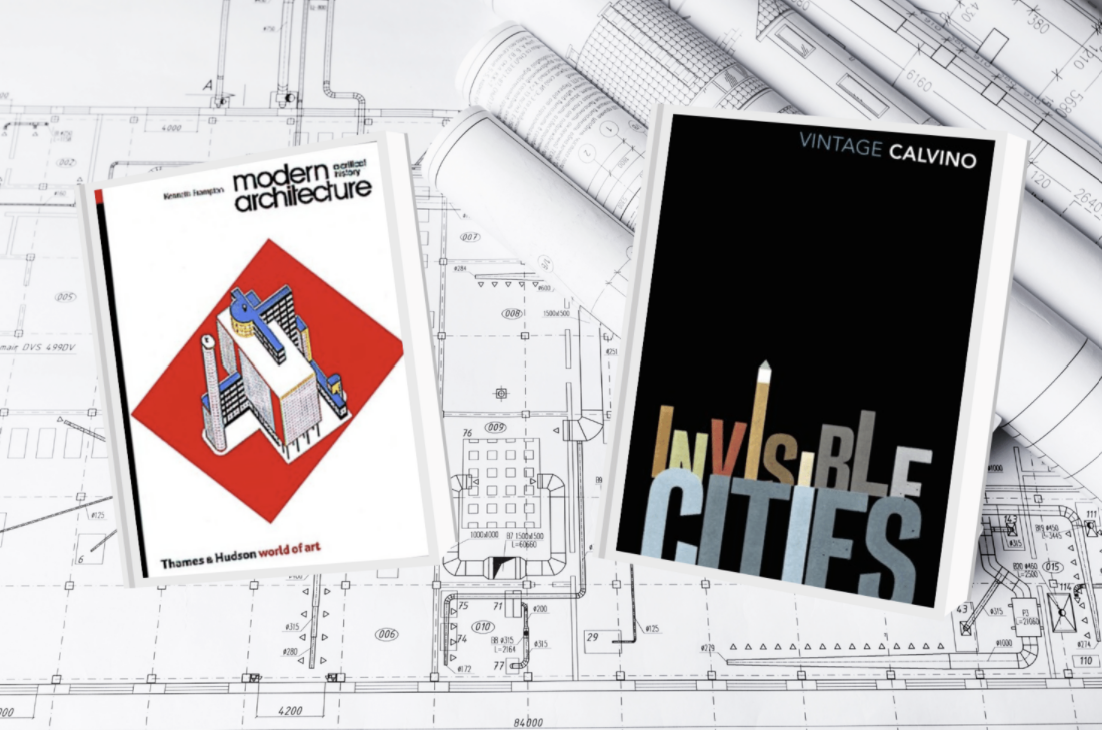The Future Is Architecture: Words of Inspiration, Tips For Degree Preparation and Work Experience From a Cambridge Architecture Graduate
Emilia is a University of Cambridge Architecture graduate (1st Class, placed 2nd in her cohort). Emilia was awarded the Andre Fu Design Award by Robinson College for innovation and excellence in digital design in an academic context. Currently, she has taken a position as a Part 1 Architectural Assistant, working for her Cambridge design tutor. In this article, Emilia leads you through her journey from school to Architecture at Cambridge and discusses why & how to apply for an Architecture degree. Find out how to prepare your own university application, whether to seek work experience, and what Emilia is most excited about in the field of Architecture now and in the future.
What prompted you to apply for Architecture at university?
Deciding to apply for architecture was definitely not an immediate decision for me. At school I enjoyed, and was equally capable in, both STEM and arts subjects so I found it increasingly hard to choose which direction I wanted to continue my education. However, as I explored my interests I found both STEM and arts subjects would largely intersect themes within the field of architecture. For instance, I studied Biology A Level and I was often reading about ecological research that found application in design of sustainable building methods. Also, in my Art A Level my projects tended to focus on observations of the urban environment through sketching, painting and model making. And so, it was not particularly the architectural profession itself that appealed to me initially, but that in reading Architecture I could combine my various interests to find their application in the built environment.
I think my secondary education was unusually good for this as teachers would host discussion groups to which we each brought our own perspective from the field of study we were interested in. This introduced me into thinking creatively between subjects and was something that really spurred me on to seek out similar discussions at university.
Architecture is such an interdisciplinary field that it is often overlooked at school for fear of being so complex to teach as a set curriculum. It’s only a university that topics ranging from history of art and architecture, 20th century philosophies, urbanism, ecology, structural engineering, sustainability science, product design can be accessed alongside developing drawing and design skills. It’s important for students to know that the traditional subjects at school aren’t the only option. Courses like architecture really allow you to take the built environment as a case study to extract knowledge from and apply too, as opposed to learning content and then having to seek its application in real-world scenarios. Taking opportunities in school to network with current students or practising architects to hear about their experiences can be a really good way to uncover a path of study you may have never considered.
https://www.archdaily.com/tag/ecological-architecture - Chinese architect Mingfei Sun has designed an environmentally oriented urban hub for Masdar City, Abu Dhabi
How would you suggest a student goes about preparing for a degree in Architecture?
I would really advise you to just begin by exploring your surroundings. It sounds a bit cliché but there is so much in our everyday environment that involves design, history, technology, or ecology etc. to learn from. Being able to engage with your surroundings through, sketching, reading or research is something you’ll be expected to do throughout the degree. It’s these observations that will allow you to apply your thoughts as a designer, so starting now is a really positive and productive way to find your own future interests (and great to talk about and display in your portfolio interview).
Readings are obviously a large part of the course, but I would say there is no one book that’s going to prepare you for the course in its entirety. The course itself is great in supporting you to find your own path of study and delve into what interests you. During my last year at school, I undertook an Extended Project Qualification that allowed me to focus my readings and research in an essay. I was able to combine my interest in the history of the Russian Avant Garde art movement with the work of a modern architect, Zaha Hadid. Being able to produce a research question helped to consolidate the readings and gain new depths of understanding of a topic. Projects like this can be a great way to not only find readings but develop an approach to productively interacting with topics. This will help prepare you for the degree (especially if your A Level subjects aren’t essay based) as you’ll be expected to find new ways of interpreting and reacting to certain topics of thought through essay writing.
Also, for more general reading about the profession I’d recommend reading articles from the Architects’ Journal that provide good overviews of more recent developing topics in the field.
Finally, I am hosting Minds Underground’s Architecture Summer School (9 sessions over the summer period), which is fantastic preparation for aspiring Architecture students looking for exciting personal statement content and impressive talking-points at interview.
“13 Striking Buildings by Zaha Hadid” - Heydar Aliyev Centre in Baku: https://www.architecturaldigest.com/gallery/zaha-hadid-greatest-works-slideshow
Is it important to get work experience when applying for Architecture? How would you go about it?
I wouldn’t say it’s extremely important - a lot of people on my course hadn’t undertaken work experience but then some people had. I think there’s less of an emphasis as, although the course gives you a professional qualification, it’s not limiting to the architectural profession. Many people in my year decided the job isn’t for them but they still wished to continue to make equally valid contributions within the field of architecture. Therefore, when applying the admission board will expect this and I believe more importance is placed on finding people that have a genuine interest in architecture, whether that be historical, technological or in sustainability research etc. However, this doesn’t mean that you still shouldn’t show you have some understanding of the architectural field, whether that be reading up on some current research or design projects that interest you.
Equally, having work experience can be a great way to explore whether being a qualified architect is something that interests you. I’d recommend reaching out to your local firms by finding a contact email on their website. Its good to explain your interest in studying architecture and perhaps mentioning some their projects that you liked and why, and hopefully they will host you in the office for a few weeks to gain experience of the day to day work of an architect.
Undertake an Architecture Research Project with Minds Underground
Under the tutelage of an Architectural Assistant, undertake a specialised guided online research project (typically over a 4-week duration), involving 5 weekly hour-long project tutorials (From £75/h).
For students applying to architecture, a portfolio is usually required for admission and MU research projects are a great way of introducing researched based design work.
To find out what Architecture projects may be on offer, fill the project form on the page linked:
https://www.architecturaldigest.com/story/drawing-architecture-book (Pictured above)
Have you undertaken a work placement anywhere particularly fascinating? What does the current work you do involve?
I’ve undertaken a few work placements before and during my undergraduate degree. These were based locally for me in Manchester, and I found them to be particularly fascinating as they gave me valuable insight into the future development of the city. A placement I did in the summer of first year informed my research proposal for my third-year dissertation which examined nuances in the role of heritage in the urban development of Manchester. In that regard, work experience can be a great opportunity to find out more about the development of your surroundings.
I’ve recently started a new job in London, working as a Part 1 Architectural Assistant in my Cambridge tutors’ firm. The projects I’m working on are largely community focused and has me producing drawings and renderings to present to the clients for review.
Do you have a favourite architect/ style?
I think this is the toughest question - I don’t think I have a particular favourite style, but I would say Italian cities are some of my favourites. They contain some of the most beautiful and well-crafted spaces, from small enclaves in the streets to the vastness of their Basilica’s they are a marvel to experience. Also, their layers of history that intersect in modern day life is something so unusual and unique that produces a rich urban environment and can be wonderful to sketch and observe.
https://www.architecturaldigest.com/gallery/best-cathedrals-italy: Milan Cathedral, Milan
Are you excited about the future of Architecture?
Yes so much! Obviously there’s a drive to move to more sustainable methods of building and design with the climate emergency. This is seeing new approaches across the field of architecture, not only influencing technological advancement but demanding a rethink in how we approach building altogether. This requires historical research of vernacular design to interact with everyday practice to produce harmonious designs. Problem solving tactics to rethink how we can reuse and retrofit buildings is also at the forefront of the profession. One example that has recently embodied this developing approach to architecture is Lacaton and Vassal’s recent renovation at Palais de Tokyo in Paris. Instead of rebuilding, the architects harnessed the building’s existing features in their entirety to produce an innovative and unique space that otherwise could not have been imagined.
Final words of inspiration for students:
I would just advise that you really explore and embrace what an architecture as a course has to offer. It may be that you stumble upon the application of an interest you haven’t ever considered before that can be both mind opening and rewarding in so many ways. Even if the course hadn’t occurred to you immediately, I’d recommend further research and consideration as it really is a fantastic field of study.
Are you thinking of Architecture as a degree?
Head over to our on-curriculum division, U2 Tuition, and have a read of our “Preparing for Architecture at University: 10 Tasks to Kickstart Your Reading, Personal Statement Writing and Interview Preparation” blog.
U2 Tuition has a wonderful team of Architecture tutors, many of whom undertook the Cambridge Architecture degree, and offer support in all of the application components: personal statement, Architecture Admissions Assessment, portfolio work and interview preparation. More info in the blog post!





